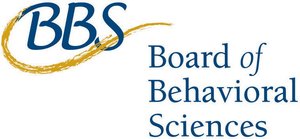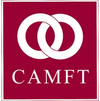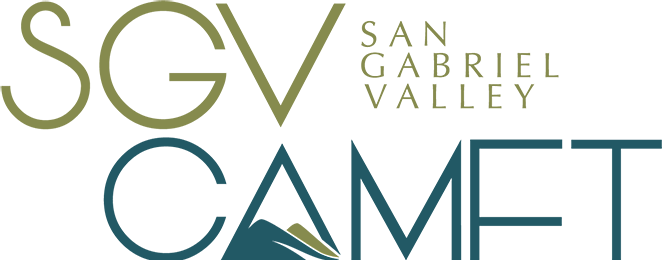|
When therapists talk about how to make their practices more successful, the first thing they want to know is how to get more clients and referrals. Good question, right?
The best answer about how to get the word out about you, your practice, and your work so you can get more paying clients, is to make sure your practice and contact information is clear and readily accessible to potential clients, colleagues, and referral sources whenever they need it. It’s a well-known fact that prospective clients and referral sources will only contact you if they know what your services are and they can easily locate your phone number to call or text you—or your email or social media page to write or message you. Pre-Covid, when professionals did a lot of face-to-face networking, business cards usually did the job of getting a therapist’s name, services, and contact information in front of people. Online, websites, directory listings, and social media pages did the heavy lifting of providing the therapist’s contact details so people could connect with them and make an appointment. With just about all professional events happening virtually now, it’s rare for therapists to exchange business cards, flyers, and practice swag—pens, note pads, Post-its—so a clinician’s contact details aren’t always close at hand. Yes, the information is still online for people to look up with Google or another search engine but that takes another few clicks and more time. People are impatient these days. Think about how many times someone has emailed you or you read an email and wanted to contact the person by phone or text or look at their website or social media and none of that information was available, sometimes not even their last name because their email address didn’t include their full name either. Did you do a search or did you skip it? Most people skip it so these referrals and opportunities are lost. What can a therapist do today to get their practice information and contact details out and in front of everyone’s eyes so their services are always top of mind and people can easily access the details whenever they have a question, want to connect, send a referral, talk to you about an opportunity or schedule a session? Here’s where email signatures shine bright today. Email signatures are the savvy clinician’s new secret weapon for convenient online professional networking and practice marketing. Think about it. How many emails are you sending and receiving these days? Each person you write or reply to professionally or in your community has the power to become a referral source or a client—but only if they have the right information about your practice and how to contact you. Today, the quickest, easiest, and most cost-effective way to disseminate your contact information, let people know about your work, and fill your practice, is to make the most of your email signature. Email signatures are the new business cards. They’re one of the best ways to present you, your services, and your contact information so it’s available whenever needed. A thoughtfully crafted email signature is a small but powerful marketing tool that makes it easy for people to know more about you and what you offer—and to contact you or refer someone to you. It’s a recurring thing that recipients of your emails see over and over again and that develops trust and recognition. What contact info needs to be in an email signature so that prospective clients and potential referral sources can contact you or refer someone to you? Email signatures should include all the ways there are to contact you professionally. Here are some examples. The Basic Email Signature: Include each of these.
The More Complex Email Signature: All the above 1-7 plus any of these that your ideal clients, colleagues, and referral sources use and make it easy for them to contact you.
Depending on your target audience and preferred clients, you can also list new services, special offerings, free consultations, event information, specific blog content, awards, professional association positions, etc. Anything that delivers value to colleagues, prospective clients and referral sources, other professionals, community members, and yes, even friends, neighbors, and relatives, can be embodied in an email signature. It is absolutely amazing how much value can be put into such a few lines at the end of an email. Crafted with your client, services, and profession in mind, your email signature holds the power to create a positive, professional image, and reinforce and extend your branding and marketing efforts. An added bonus is that you don’t have to hire a graphic designer, an app developer or a coder to put together your email signature and add it to your email footer. Additionally, there are plenty of excellent templates, generators, and editors to explore, many which are free. Have some fun exploring other clinician’s email signatures and then crafting your own. Lynne Azpeitia, LMFT, AAMFT Approved Supervisor, is in private practice in Santa Monica where she works with Couples and Gifted, Talented, and Creative Adults across the lifespan. Lynne’s been doing business and clinical coaching with mental health professionals for more than 15 years, helping professionals develop even more successful careers and practices. To learn more about her in-person and online services, workshops or monthly no-cost Online Networking & Practice Development Lunch visit www.Gifted-Adults.com or www.LAPracticeDevelopment.com.
0 Comments
The beginning of the year is always the time for resolutions, and this holds true for private practice, too. The top resolutions mental health professionals tell me they’re making this year are still the same ones as last year increasing practice income, cultivating new connections and referral sources, how to make dealing with insurance less time consuming and stressful, how to attract more ideal clients through branding, and publishing that book you want to write.
Oh, and I almost forgot—how to add coaching to your practice. So, here are the five best books to help you and your practice meet your goals for more and better with less stress in your private practice this year! 1. Increasing Practice Income If your New Year’s resolution is increasing the income in your practice by money, doing good, and having fun, then Chellie Campbell’s From Worry to Wealthy: A Woman's Guide to Financial Success Without the Stress is the one for you. Reading this will help guide you to creating a richer and more fulfilling practice based on your values, interests, and needs. So if you’re interested in more income, time off, time for home and family, charging a fair price while contributing to the greater good, From Worry to Wealthy is a practical and friendly ticket to fulfilling that resolution. While you’re checking out Chellie’s book, check out her other ones which are equally great! The Wealthy Spirit and From Zero to Zillionaire. 2. Cultivating New Connections and Referral Sources If you are not a natural networker—most therapists find networking challenging—and would like your own personal guide for what to do to make new connections with others and to cultivate new referral sources, How to Work a Room: The Ultimate Guide to Making Lasting Connections—In Person and Online by Susanne Roane will give you the guidance you need. This small book is the encyclopedia of how to easily and practically make connections with others whether you’re online or in person—just reading the table of contents is reassuring and encouraging! So whether you’re interested in opening lines for greeting and meeting, tips for introducing yourself and your practice or how to build bridges, bonds, and business relationships, check out How to Work a Room and find the answers you seek. 3. Make Dealing with Insurance Time Consuming and Less Stressful If your practice depends on insurance reimbursement as either an in-network or out-of-network provider, Barbara Griswold’s Navigating the Insurance Maze: The Therapist's Complete Guide to Working with Insurance—And Whether You Should is for you. Navigating the Insurance Maze is the must have reference for every therapist. This easy-to-use manual guides you through what every therapist needs to know about insurance—and answers the questions you have. Joining plans, instructions for claim forms, how to get more sessions approved, how to make appeals, common therapist mistakes, and how to stay out of trouble are all part of the great value of Barbara’s seventh edition. It’s well worth the price. 4. Attract More Clients Through Branding If your resolution for this year is to attract more clients—more ideal clients—to your practice then you'll be really interested in reading or listening on Audible to Robin Fisher Roffer’s Make a Name for Yourself: 8 Steps Every Woman Needs to Create a Personal Brand Strategy for Success. Robin says it best on her Big Fish Marketing Website because it greets you with the words, “We guide you to write, tell, and live your greatest story.” Her book does just that. Make a Name for Yourself shows you how to easily identify your own unique traits and talents for career success and personal fulfillment. This friendly, fun, practical, and easy to apply book is like attending a workshop and learning the 8 steps that “unearth your authentic self to develop a brand that reflects your natural talents, abilities, and passions.” I recommend this book to practice coaching clients and every single one has said that they were very surprised by how much they enjoyed reading this book and how effective it was in helping them to identify what attracted the clients they love to work with—and to more easily and authentically, write, tell, and share the story of who they work with, why, and how they successfully work with those in their practice. 5. Publish That Book You Want to Write If writing and publishing that book you’ve been wanting to write is your resolution for this year then Sylvia Cary, LMFT’s The Therapist Writer: Helping Mental Health Professionals Get Published is the book you’re going to want. As Sylvia tells it, getting a book published can lead to more—more attention, referrals, business, and money. She’s also right when she says it’s one of the quickest ways for a therapist to become known as an expert. The Therapist Writer is a practical, useful, easy to use guide that helps you make your book idea into a completed manuscript. With Sylvia’s guidance—and she knows the ropes since she’s a local LMFT as well as a writer and book coach—you’ll figure out what to write, how to get it written, and how to market and sell it once its complete. If you’re wanting to have your book published, then this little volume belongs on your bookshelf. This is the book I recommend to those I train and coach who have a book on their wish list. Make yours happen this year by getting this one. Bonus: How to Add Coaching to Your Practice If you’re interested in how you can add coaching to your practice this year then David B. Ellis’ Life Coaching: A Manual for Helping Professionals is a good choice for you to purchase. This is one of the best overall coaching books I’ve come across, read, and used. It’s written to assist the currently practicing mental health professional—one who’s already been specifically trained as a counselor, minister or social worker—begin practicing as a life coach. Life Coaching, like the other books in this list, is a practical, easy to read and apply, step-by-step guide that helps therapists add coaching to their practices. One of the reasons I like this book is that David B. Ellis has an interesting approach to coaching. He doesn’t view it as merely skills training and advice, he views coaching as assisting people in creating their own solutions, arriving at their own answers, and discovering options for themselves through using a coaching framework and approach. This is a way of working that therapists can appreciate as well as enjoy when doing coaching work with clients. So now you have this recommended list to aid you in your goals for the year. Yes, it’s the same list I recommended last year. After looking over the books, I decided to share the list again because it is such a good one. Have fun in looking over these resources and choosing the one or ones that are right for you. Lynne Azpeitia, LMFT, AAMFT Approved Supervisor, is in private practice in Santa Monica where she works with Couples and Gifted, Talented, and Creative Adults across the lifespan. Lynne’s been doing business and clinical coaching with mental health professionals for more than 15 years, helping professionals develop even more successful careers and practices. To learn more about her in-person and online services, workshops or monthly no-cost Online Networking & Practice Development Lunch visit www.Gifted-Adults.com or www.LAPracticeDevelopment.com. |
Lynne Azpeitia, LMFTFor 10+ years Lynne Azpeitia has helped therapists to live richer and happier lives through her workshops, private practice, clinical, and career coaching, and her practice consultation groups which train, support, and coach licensed and pre-licensed therapists, associates, & students how to create and maintain a successful, thriving clinical practice and a profitable and sustainable career, Archives
July 2024
Categories
All
|
Lynne Azpeitia, LMFT (310) 828-7121
AAMFT Approved Supervisor
Coaching Clinicians for Practice & Career Success
Online and In-Person
3025 W. Olympic Blvd
Santa Monica, CA 90404
&
Phone, FaceTime, What's App & Video Sessions Available for Coaching & Psychotherapy
Coaching, Workshops, Training & Consultation
www.lapracticedevelopment.com
Psychotherapy
Online and In-Person
&
Business, Personal, & Creative Coaching
Specializing in Coaching & Psychotherapy for
GIFTED, TALENTED & CREATIVE ADULTS
www.gifted-adults.com
© 2017-2024 Lynne Azpeitia All Rights Reserved






